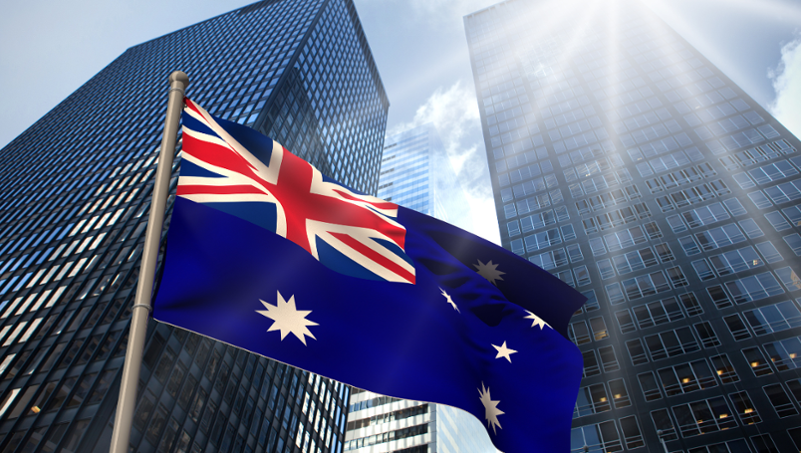This article first appeared in the AFR on the 15th October 2021
Industry heavyweight Paul Taylor speaks to the AFR about Australia's re-opening, areas where he's seeing opportunity and what he's looking to as we return to 'normal'.
Q1. How are you reading the iron ore price at the moment? Given it’s still above the cost of production and the big miners have seen their valuation hit, do you think it’s a good opportunity to pick up the majors at a lower price, or is there more downside to come?
Not long ago the iron ore price was well over US$200 / tonne and even today at around US$130 / tonne the iron ore price is probably at an unsustainably high level for the long term. Market estimates would probably suggest that the expected long-term price of iron ore is more in the US$50 – US$80 range. All of these estimates are still well above the cost of production for the majors which means margins and cash flow will remain strong. The key question is how long will it take for the iron ore price to fade from current levels to long-term price levels? If it manages to fade at a slower rate, combined with the majors’ strong balance sheets, good valuation levels and dividend yields it could represent an attractive longer-term option.
Q2. How do you think the tightening of lending rules will impact the valuations of the banks? Given your position in CBA, do you think it can re-test its record high share price?
Any tighter lending standards would most likely reduce system credit growth. This is what tighter lending standards are meant to do! Lower growth would likely lead to lower earnings-based valuation multiples. It is, however, important to note, that there are a lot of moving parts with the banks at the moment. They have considerable headwinds from increased competition, regulation, already very low loan loss rates and low interest rates. If, however, we start to see higher inflation and interest rates that lead to a steepening yield curve, bank’s margins should start to improve. Furthermore, any tighter lending standards that might reduce growth in the short term also help create a more sustainable system for the long term.
CBA is the largest bank holding in the Fidelity Australian Equities Fund. While there are many short-term positives and negatives for the banks, the most significant long-term opportunity and threat is technology. CBA’s technology platform is probably the best in the industry and allows them to deliver a strong proposition to both consumers and business. Ultimately this should continue to help CBA achieve good long-term share price performance.
Q3. In the past few weeks, we’ve seen volatility pick up across the market, what do you think are the biggest risks that markets are grappling with and do you expect things to stabilise heading into the back end of this year?
I believe the current market volatility reflects the fact that we are now in a transition period. We are transitioning from a government supported Covid-19 economy towards a reopened more normal economy. Any transitionary period is considerably more uncertain than a stabilised environment. As we all know, markets don’t like uncertainty and volatility is the markets way of trying to assess the environment. There is not yet a clear roadmap through this transition period and many questions remain. Will a reopening be a catalyst for some companies to go under? Will companies try to lower costs? Will consumers quickly embrace the reopening? Will supply disruptions remain and for how long? Will state borders continue to close? Will there be more variants? Will some industries ever return to normal? The answers to these questions will become clearer as we move through the transition period. As we fully reopen, the environment should start to stabilise again, bringing more certainty to business conditions and lowering volatility.
Q4 and Q5. You’ve spoken about the importance of the reopening trade. Which specific stocks are you holding, or planning on taking positions in, to capitalise on that theme, and how are they positioned to benefit? What are the biggest opportunities and consequences for equity markets coming from the reopening theme as it plays out next year?
I think the reopening trade will be the dominant theme through 2022. Reopening the economy will have big consequences for travel, tourism, experiences, hospitality, hospitals, live events and the arts. I think the key question is how much will we return to normal in 2022? A good example of this is travel. Leisure travel should bounce back pretty quickly but there are big question marks over whether business travel will return to pre-pandemic levels. Many companies are now embracing a net zero emissions target and that alone means businesses will need to limit travel to meet their targets. Combine that with the efficiency and effectiveness of platforms such as Zoom, Teams, Webex and Google Meet and I think it’s unlikely business travel will return to normal in 2022. Importantly, habits have changed throughout Covid-19. Just how sticky these new habits are remains to be seen. People are now used to working more from home. They’ve also significantly reduced the double grocery shop which has been bad for companies such as Aldi but good for Coles and Woolworths. Structural themes like e-commerce, digital delivery of food and beverage and a cashless society which were happening prior to the pandemic have been accelerated by Covid and are likely to remain as we reopen. The other key consequence from reopening will likely be higher inflation and interest rates, although this will likely be a long normalisation process.
Some of the companies that we hold in the Fidelity Australian Equities Fund and think will benefit from the economy reopening include Helloworld, Ramsay Healthcare, Ardent Leisure, Tyro and Experience co. Helloworld should benefit from the opening of the outbound international leisure tourism market. Experience co should benefit from a more normalised domestic and international tourism market. We expect to see strong growth in Ramsay Healthcare as private hospitals around the country (in particular the lock down states of NSW and Victoria) resume more normal levels of elective surgeries. Tyro should profit from restaurants reopening. Energy and resource companies should also advance as a result of more normal demand levels for oil and other commodities. We should also see some interesting developments for CSL which will benefit from stronger plasma collection as the USA normalises.
Q6. Are there any areas of the market that you think are undervalued at the moment, or are being overlooked by investors?
I think the Insurance sector looks good value at the moment. We are entering an improving premium cycle which should benefit general insurance companies. Our largest position in the Fund is Suncorp. Decarbonisation is also an important theme in the market with minerals like nickel, copper and lithium well positioned for this transition. IGO has good exposure to these minerals.
Q7. Do you have a ‘local’ restaurant or pub you’d recommend in Brisbane? What’s your go-to food and beverage order after a long week?
My favourite restaurant / pub in Brisbane is the Norman Hotel. Perfect environment to catch up with family and friends. Love the relaxed, casual atmosphere. A great steak with a nice shiraz and a few friends is a perfect night out for me.
Q8. What are your passions outside of work? Anything you’re looking forward to doing once we can travel again?
I am passionate about the arts. The arts community has obviously been hard hit by Covid-19, but it’s great that some wonderful events and festivals still went ahead in Brisbane this year. I loved GOMA’s recent exhibition “The European Masterpieces from The Met”. I think the art community has been impressively resilient and I’m looking forward to everything getting back to normal for everyone involved.
I am also very excited about resuming international travel. I did my postgraduate studies at London Business School and just received an email that my 25-year reunion is scheduled for next June, which would tie in very nicely with a family trip to Europe. What better way to celebrate the reopening than a trip to London with my family to catch up with my old classmates.

